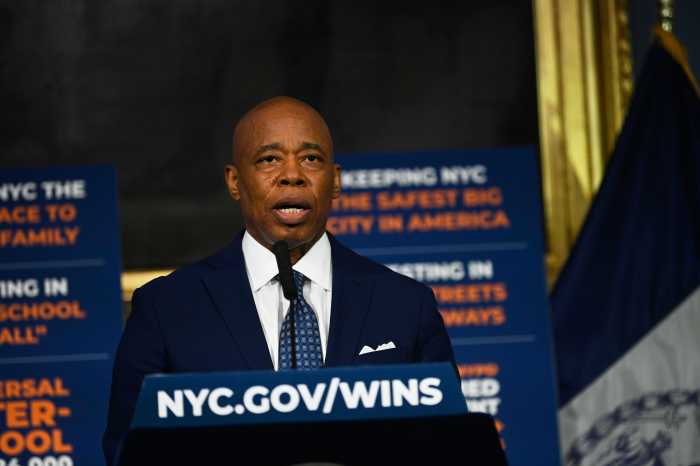
Now that we know New York has an attorney general who makes up the law as he goes along when it comes to the securities industry, where will he draw the line? Today Eric Schneiderman said his office has reached agreements with 18 financial-services firms, most of which are Wall Street banks, to “stop their practice of cooperating with analyst surveys administered by certain elite, technologically sophisticated clients at the expense of others.” He said this practice “can put the market at large at an unfair disadvantage.” And maybe he’s right about that.
But who said life is fair? And why is it his business whether banks’ stock analysts answer questions from their firms’ customers? Schneiderman himself said in an interview last month with Bloomberg Television that what the firms were doing “does not fit into the classic framework of insider trading.” So he’s calling it “insider trading 2.0.” It used to be hip to call things 2.0 during the 1990s dot- com bubble. Now Schneiderman has appropriated the term as a way of referring to things that are legal that he wants to crack down on because he thinks they’re unfair, even though he doesn’t have a case that would hold up in court.
So back to these analyst surveys he’s so concerned about. Schneiderman says he’s looking out for the broader market, i.e., the little guy. That’s people like me, I guess. But in this instance I can’t understand why he is so worried about me.
Let’s say I’ve got a bank account at JPMorgan Chase & Co. and a brokerage account, too. I pay hardly anything in fees to JPMorgan. I have no expectation that anybody who writes stock- research reports for JPMorgan’s institutional clients will take my phone calls or return my e-mails — and every reason to believe that JPMorgan’s analysts would be less eager to talk to me than someone at a JPMorgan client with billions of dollars of assets under management.
Is it fair that the behemoth has more access to the deep thoughts and insights of JPMorgan’s analysts than I do? And can those clients reasonably expect to be able to pick up the phone and ask them things like what their favorite companies are and who they think is in a world of trouble? Well, yes, because that investor pays a lot more money to JPMorgan than I do. The more clients pay, the more access they get. This isn’t a democracy; it’s Wall Street. Analysts are supposed to gather information (the legal kind) and form opinions. It’s the bank’s business to decide whom they share those opinions with and when, not Schneiderman’s.
Occasionally analysts’ opinions move markets, but again, that’s the business they’re in. And there’s nothing in the law that says banks, news organizations, bloggers sitting at home or anybody else is required to share their opinions with every person in the world simultaneously.
That doesn’t mean we have to like it when a bank’s biggest clients get unfair advantages. You could make a strong argument that it’s bad for business to have some of a bank’s clients feel as though they are second-class citizens. They might start taking their business elsewhere. But Schneiderman by all appearances has browbeaten the banks into changing their ways when they were under no obligation to do so.
But back to the original question: Where are the analysts supposed to draw the line now? Just about every time a Wall Street securities analyst issues a research report, it lists contact information at the top. Schneiderman in his news release today said the “the firms have agreed to suspend participation in any survey worldwide that relates to companies listed on U.S. exchanges.” So are nationwide surveys acceptable? How about statewide or citywide? And what constitutes a survey anyway? Are people allowed to call up analysts and ask them any questions at all? How about five questions? Or 10? What’s a permissible number of questions? For that matter, what’s a permissible question? Who is allowed to ask them? Are people allowed to ask analysts about errors or ambiguities in their reports? What if the questions cause analysts to change their minds about something? Are the analysts allowed to tell that to the people who called them? We have no idea what the answers are, though I suppose Schneiderman will know a problem when he sees one. This isn’t how the law or its enforcement is supposed to work. In a wonderful twist, Schneiderman hasn’t released copies of the agreements with the banks, so the terms are still super-secret inside information that only he and the banks have. Isn’t that unfair, too?
Jonathan Weil is a Bloomberg View columnist.





































